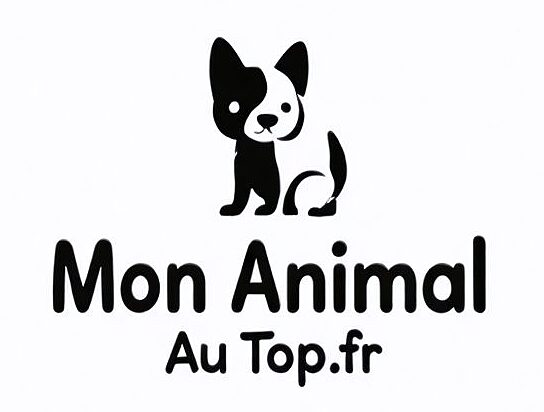What are the specific needs of puppies in education?
Raising a puppy is an exciting experience, but it also involves meeting specific puppy needs related to their training. Understanding these needs is essential for establishing a harmonious relationship and helping your young companion grow in a balanced manner. By starting with early education, you can lay the foundation for a life of companionship and mutual respect. We will cover here the crucial aspects of puppy education, such as socialization, house training, basic commands, and the essential role of play in their development.
The Foundations of Puppy Training
It is crucial to know the dog training methods that adapt to the specific needs of puppies. Knowing when and how to start training your puppy can make all the difference.
When to Start Training Your Puppy?
It is recommended to start training as soon as your puppy arrives, usually around 8 weeks. At this age, they are particularly receptive and can learn quickly. Starting training early allows you to channel their energy and avoid the emergence of undesirable behaviors.
The Importance of Socialization
The puppy socialization period is crucial for developing a balanced dog. By exposing your puppy to different environments, people, and animals, you help them feel confident in various situations. Do not neglect this step, as successful socialization helps limit anxiety and fearful behavior in adults.
The Principles of Positive Puppy Training
At the heart of successful education lies the concept of positive puppy training. This method emphasizes reinforcing desired behaviors with rewards, such as age-appropriate treats, for example, Pedigree treats. Using positive reinforcement encourages joyful and motivating learning for your companion.
The Challenges of House Training
Teaching your puppy to be clean is essential for peaceful cohabitation. This often requires effort and patience.
Essential Techniques for House Training
It is important to establish a regular schedule to take your puppy outside. When they relieve themselves in the right place, be sure to reward them warmly. Create frequent outings, especially after meals or naps, to help them understand that they should relieve themselves outside.
Urine Marking
Understanding the puppy needs to mark their territory is crucial. This natural behavior is related to their instincts and communication with other dogs. Allowing your puppy to mark during walks is therefore essential for their well-being. Avoid scolding them if they have accidents indoors; patience and support are key for effective learning.
Basic Commands: An Absolute Necessity
Mastering basic commands is fundamental to ensuring the safety and well-being of your puppy.
The Three Basic Commands to Teach
It is essential to work on the commands “sit,” “down,” and “recall.” These fundamentals will help you establish clear communication with your dog. Through short but regular training sessions, you will channel their attention. Recall is vital for ensuring your puppy’s safety during walks.
Integrating Play into Learning
Playing with educational toys for puppies is an excellent way to reinforce learning of basic commands. Use these playful moments to learn while having fun. For example, instead of just saying “sit,” combine this command with a little play session by rewarding them. This will make training more appealing and less stressful for your puppy.
The Fundamental Role of Play in Education
Play is a determining factor in puppy education, both as a learning tool and an energy channel.
Play and Learning
Incorporating play into education not only allows for effective learning, but it also creates happy memories. Chase games, retrieval games, or even hide-and-seek games with treats integrate forms of entertainment and education. This also promotes their physical condition and stimulates their mind.
Socialization Through Play
Play interactions with other dogs are also crucial. They allow your puppy to learn canine social codes and build their confidence. Arrange friendly meetups where your puppy can play freely in a safe environment. Just be sure to monitor interactions to prevent any problematic behavior.
Choosing Accessories for Puppies
For playful and effective learning, equip yourself with suitable puppy accessories. This includes appropriate chew toys, frisbees, and talking toys that will help develop their curiosity and well-being. Each accessory should be chosen to be safe and stimulating for your puppy.
Proper Feeding and Its Impact on Education
A good diet also contributes to your puppy’s good training. Quality nutrition ensures their optimal development.
The Specific Nutritional Needs of Puppies
To support your puppy’s growth, it is crucial to offer them a diet tailored to their needs. Consider opting for Royal Canin puppy kibble that ensures good nutritional intake. Combining this diet with stimulating training and play helps your dog feel fit and healthy.
Hydration and Well-Being
Don’t forget that hydration is just as important. Ensure that your puppy always has access to fresh water. A well-hydrated puppy is more alert and receptive during training sessions.
The stages of puppy training are crucial for establishing solid foundations. With training methods tailored to puppy needs, particular attention to socialization and play, you ensure that your young companion has a fulfilling and joyful life. For more tips, explore the various resources available and consider taking a puppy training course to hone your dog training skills.
| Training Methods | Description | Key Elements |
|---|---|---|
| Positive Training | Reinforcement of desired behaviors with rewards | Patience, consistency |
| Early Socialization | Exposure to different environments and animals | Meetups, walks |
| House Training | Establishing a schedule for outings | Rewarding, consistency |
| Educational Games | Using playful moments to reinforce learning | Vary activities, make play enjoyable |












